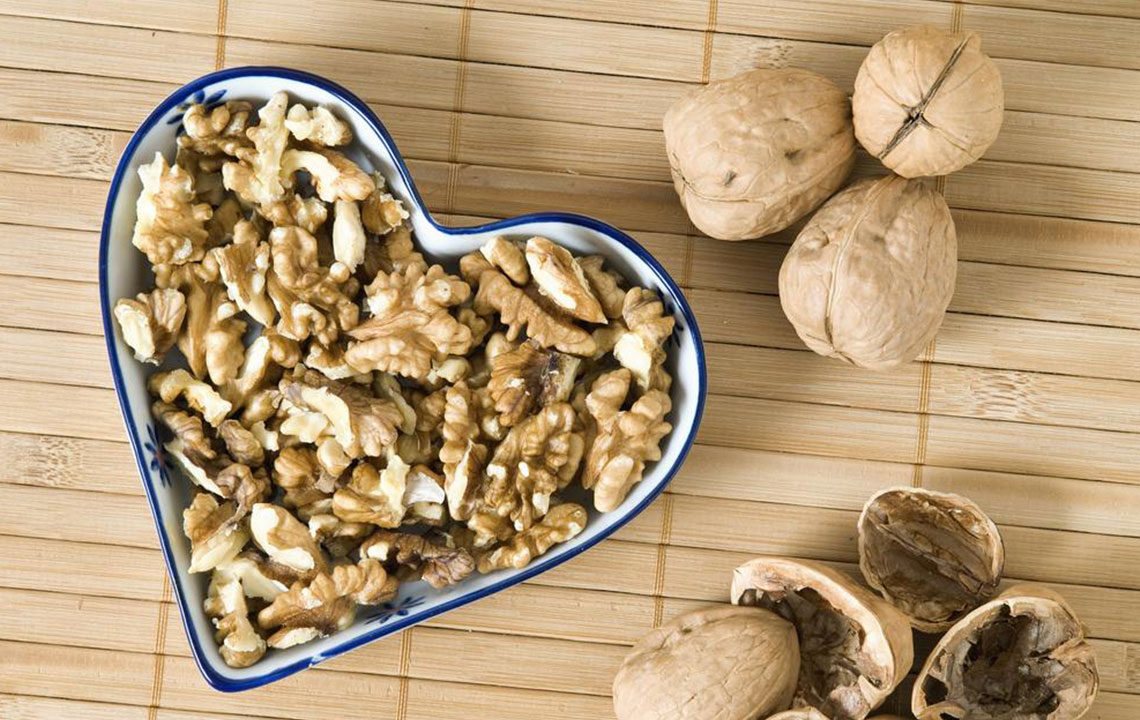Here’s How You Can Reduce Cholesterol Levels Naturally
Cholesterol is a waxy, fat-like substance present in every cell of the body. It is essential for the production of vitamin D, hormones, and other chemicals in the body that aid in digestion.
Cholesterol is carried throughout the body by low-density lipoproteins (LDL) and high-density lipoproteins (HDL). For a healthy person, it is important to maintain a healthy balance between the LDL and HDL levels.
LDL is also called bad cholesterol while HDL is called good cholesterol.

The increased level of HDL is considered good as they take cholesterol from other parts of the body to the liver, which removes it from the body.
High cholesterol levels in the blood lead to the formation of plaque, which is made up of cholesterol, fat, calcium, and other substances found in the blood. This narrows the arteries and blocks oxygen-rich blood to reach the heart. This can cause heart attack and other severe health issues.
How to reduce cholesterol levels
Reducing cholesterol levels require a holistic approach, including healthy food, medication, and healthy lifestyle choices. Following are some of the ways which can help you reduce the cholesterol levels in the body.
Eating healthy food
Cholesterol can cause multiple health issues such as heart diseases, strokes, and heart attack. While medications can help in reducing the LDL cholesterol levels in the body, making healthy food choices can help the medicines work more effectively.
For those who are looking to reduce dependence on medication, including healthy food in your diet is very important. Following is a list of some ‘cholesterol busters’ which can help you reduce cholesterol levels and some foods to avoid, which increases the LDL levels.
Foods to include in your diet
The food items that are low in dietary cholesterol and saturated fats are beneficial in lowering the levels of LDL cholesterol in the body. These foods reduce the risk of heart diseases and strokes.
- Omega-3 fatty acids
Omega -3 fatty acids are found in food items such as walnuts, almonds, ground flax seeds, salmon, mackerel, halibut, trout, herring, and sardines. They help in increasing the levels of HDL cholesterol and reducing the level of triglyceride fats in the body. Omega-3 fatty acids are also beneficial in reducing the blood pressure. This makes them a perfect addition to your healthy cholesterol-free diet. - Soluble fiber
Soluble fiber is found in food items such as oats and oat bran, fruits, beans, lentils, and vegetables. These foods are helpful in reducing the LDL levels and maintaining cholesterol. - Soya foods
Soya foods are naturally low in saturated fats, thus keeping your heart happy. Include food items like soy protein, soy meat, and soy nuts in your diet to enrich it and to make it healthier.
Foods to avoid in order to reduce cholesterol levels
- Saturated fats
Saturated fats such as butter, red meat, full-fat and low-fat dairy products, palm oil, and coconut oil increase the LDL cholesterol levels in the body. Saturated fats contain a high proportion of fatty acids which are less healthy for our body than the unsaturated fats like peanut butter, vegetable oil, and salmon. It is best to avoid these foods to maintain healthy LDL levels below 80. Less than 7 percent of your daily calories should come from saturated fat.
Try including lean pieces of meat and butter free cooking to reduce the intake of saturated fats in your diet. - Trans fats
Trans fats are partially hydrogenated fats which are considered unhealthy for consumption in high quantities. Trans fats are present in food items such as fried foods, cookies, crackers and snack cakes. Trans fats lower the HDL cholesterol levels and increase the LDL cholesterol levels, thus increasing the risk of heart attacks.
Avoid food items with trans fats to make your diet healthier and to reduce your cholesterol levels.
Healthy lifestyle choices
- Exercising regularly
Exercising regularly leads to weight loss and increases the density of HDL cholesterol levels. This leads to the reduction in LDL cholesterol levels and risk of heart diseases and heart attack. - Avoiding alcohol
Excessive alcohol can cause serious health risks such as high blood pressure, heart failure, and stroke. Excessive alcohol intake should be prevented to avoid an increase in LDL cholesterol levels. In case you already drink alcohol, take it in a moderate amount to prevent any serious health issues. - Lose weight
Losing weight is a good way to reduce your cholesterol levels. Try including healthy habits in your lifestyle, such as eating at regular intervals, reducing the portions of food, avoiding saturated and trans fats, and staying physically active throughout the day.